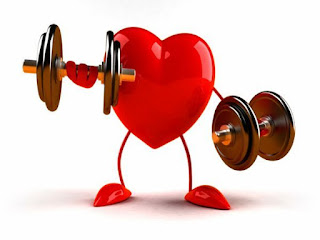Medicines have advanced over the years. Many conditions can now be treated that would not have been treatable previously, due to lack of technology and medications. New medications are being developed daily, many of which will be beneficial for your patients in the future. It was not that many years ago that a simple throat infection could cause death. There is no question that for many patients, medications make life tolerable.
Over the Counter Drugs
We have all heard aspirin being called the wonder drug, and that is actually not far off. Aspirin has numerous benefits that most people are not aware of. Aspirin can prevent and stop heart attacks and strokes. Aspirin can help ease arthritis pain and headaches as well.
5 Uses for Aspirin
- Skin conditions- dating back to the fifth century B.C. Aspirin has been used for multiple reasons, including skin conditions. Aspirin can actually treat many skin conditions. Aspirin is a derivative of the acetylsalicylic acid, extracted from the bark of a willow tree. The compound has been used since The fifth century, B.C. To relieve aches and pains. The compound for aspirin can also be used to exfoliate dead skin cells on the skin, many people with psoriasis find it beneficial in clearing skin. Aspirin powder can remove excess oils, which can reduce acne breakouts. There is an endless supply of dandruff shampoos, however, aspirin in powder form rubbed on the scalp will also do the trick. Although aspirin is sold in stores, it is actually derived fright from nature, thanks to the willow bark tree.
Related: Recognizing the signs of Burnout
Cayenne Peppers
If cayenne pepper makes your mouth burn just thinking about them, you may want to think again, as they are a valuable aid in medicine. Currently, there are over three thousand studies on the health benefits of capsaicin (cayenne’s active ingredient) and cayenne pepper. Drug companies are doing studies to determine how to use cayenne in medications. It regulates blood pressure, strengthens the pulse, feeds the heart, lowers cholesterol, thins the blood, cleanse the circulatory system, heals ulcers, slows hemorrhaging, speeds healing of wounds, rebuilds damaged tissue, eases congestion, aids digestion, regulates elimination, relieves arthritis and rheumatism, prevents the spread of infection, numbs pain, and more. According to researchers, if you were allowed only one emergency herbal medicine, it should be cayenne tincture because it stimulates circulation throughout the entire body. Cayenne helps the capillaries, veins, and arteries regain their elasticity of youth. Moreover, when the venous structure becomes filled with mucus, the blood “thickens” and has a harder time circulating. Cayenne moves blood like no other herb. Cayenne tincture should be in everyone’s medicine cabinet. In fact, any holistic health advisor or practicing naturopath should have cayenne as a major component in many of their healing protocols.
Vinegar
Vinegar was discovered around 5,000 BC. Originally used as a food preservative, vinegar's medicinal uses soon came to light. Hippocrates used vinegar to manage wounds, while medical practitioners in the 1700s used it to treat everything from poison ivy and croup to stomach aches. Vinegar was even used to treat diabetes. Vinegar, which means "sour wine" in French, can be made from virtually any carbohydrate that can be fermented. The benefits and uses of apple cider vinegar (ACV) are now known more now than ever, which is why this is becoming a staple in many people's kitchen pantries. Traditionally, vinegar is made through a long, slow fermentation process, leaving it rich in bioactive compounds like acetic acid, gallic acid, and more, giving it a potent antioxidant, antimicrobial, and numerous other beneficial properties.
Apple Cider Vinegar There is no official guidelines concerning taking vinegar internally. Some people take one to two teaspoons a day, mixed in a glass of water, before meals or in the morning, and report benefits from doing so. The risk of taking small amounts of vinegar is low, and research suggests it may have some real health benefits.
- Diabetes
Vinegar is said to be anti-glycemic and has a beneficial effect on blood sugar levels. It's thought that the acetic acid in vinegar may lower blood sugar by preventing the complete digestion of complex carbohydrates, which is accomplished either by accelerating gastric emptying or increasing the uptake of glucose by bodily tissues. One theory is that vinegar might inactivate some of the digestive enzymes that break down carbohydrates into sugar, thus slowing the conversion of complex carbohydrate into sugar from a meal into your bloodstream.
This gives your body more time to pull sugar out of your blood, preventing your sugar levels from spiking. Quite a bit of research supports the use of vinegar as a diabetes treatment as well.
One study found that vinegar treatment improved insulin sensitivity in 19 percent of individuals with type 2 diabetes and 34 percent of those with prediabetes.
Yet another study found taking two tablespoons of apple cider vinegar before bed lowered blood sugar levels in people with type 2 diabetes by up to 6 percent in the morning.
- Heart Health
Vinegar supports heart health in multiple ways and is often recommended for heart attack patients.
- Weight Loss
Vinegar may help you lose weight, as it appears to have an anti-obesity effect by increasing satiety and reducing the total amount of food consumed.
- Sinus Congestion
Apple cider vinegar helps to break up and reduce mucous in your body, helping to clear your sinuses. It also has antibacterial properties, making it useful for infections.

Comments
Post a Comment